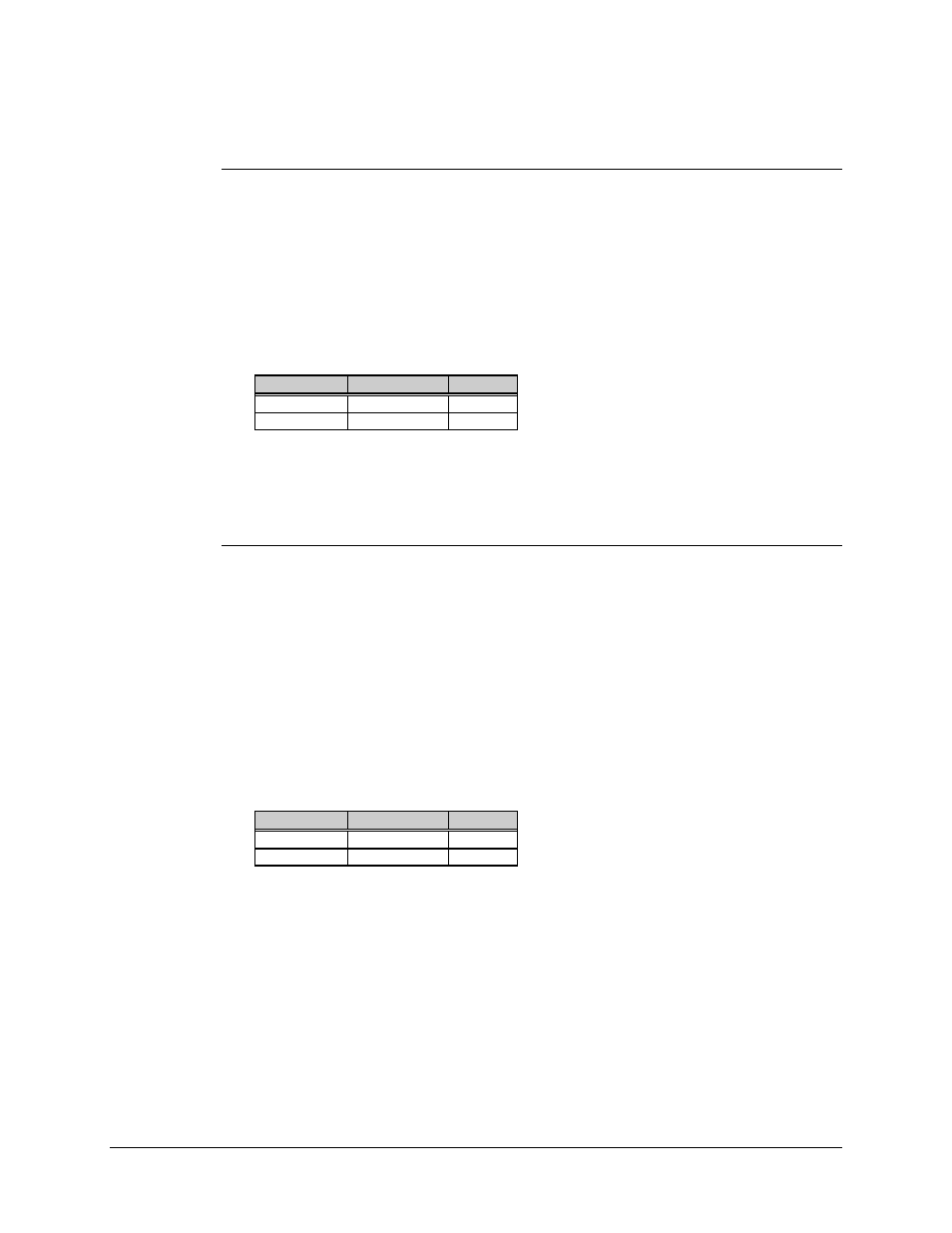3 8psk encoding/modulation, 4 16qam encoding/modulation – Comtech EF Data SDM-9000 User Manual
Page 138

Theory of Operation
SDM-9000 Satellite Modem
5–10
Rev. 4
5.2.4.3 8PSK Encoding/Modulation
The modulator converts the transmit baseband data into a modulated 8PSK carrier by
trellis encoding at 2/3 or 5/6 rate. The 2/3 rate encoder generates 3 symbols for every
2 bits input, while the 5/6 rate encoder generates 6 symbols for every 5 bits input. Using
vector analysis of the constellation pattern generated by the modulator, 8 discrete phase
angles (0
°
, 45
°
, 90
°
, 135
°
, 180
°
, 225
°
, 270
°
, and 315
°
) represent 8 possible combinations
of 3 symbols generated by the encoder. The 2/3 and 5/6 rates encoded at the trellis
encoder provide the desired bit rates as follows:
Code Rate
Symbols/Bit
Bits/Hz
2/3
1.5
2
5/6
1.2
2.5
In 8PSK operation, the hardware to perform Reed-Solomon block encoding is required to
achieve better performance. Refer to Appendix A for details on Reed-Solomon
operation.
5.2.4.4 16QAM Encoding/Modulation
The modulator converts the transmit baseband data into a modulated 16QAM carrier at
3/4 or 7/8 rate. The modulator punctures the data by using the industry standard k = 7,
1/2 rate convolutional code and 3/4 and 7/8 punctured patterns. The 3/4 rate
convolutional encoder generates 4 symbols for every 3 bits input, while the 7/8 rate
convolutional encoder generates 8 symbols for every 7 bits input.
Using vector analysis of the constellation pattern generated by the modulator, 16 discrete
phase angle/amplitude states represent the 16 possible combinations of 4 symbols
generated by the encoder. The bit rates for 16QAM 3/4 and 7/8 rate convolutional
encoding are as follows:
Code Rate
Symbols/Bit
Bits/Hz
3/4
1.33
3
7/8
1.143
3.5
In 16QAM operation, the hardware to perform Reed-Solomon block encoding is required
to achieve the best operational characteristics and performance. Refer to Appendix A for
information on Reed-Solomon operation.
